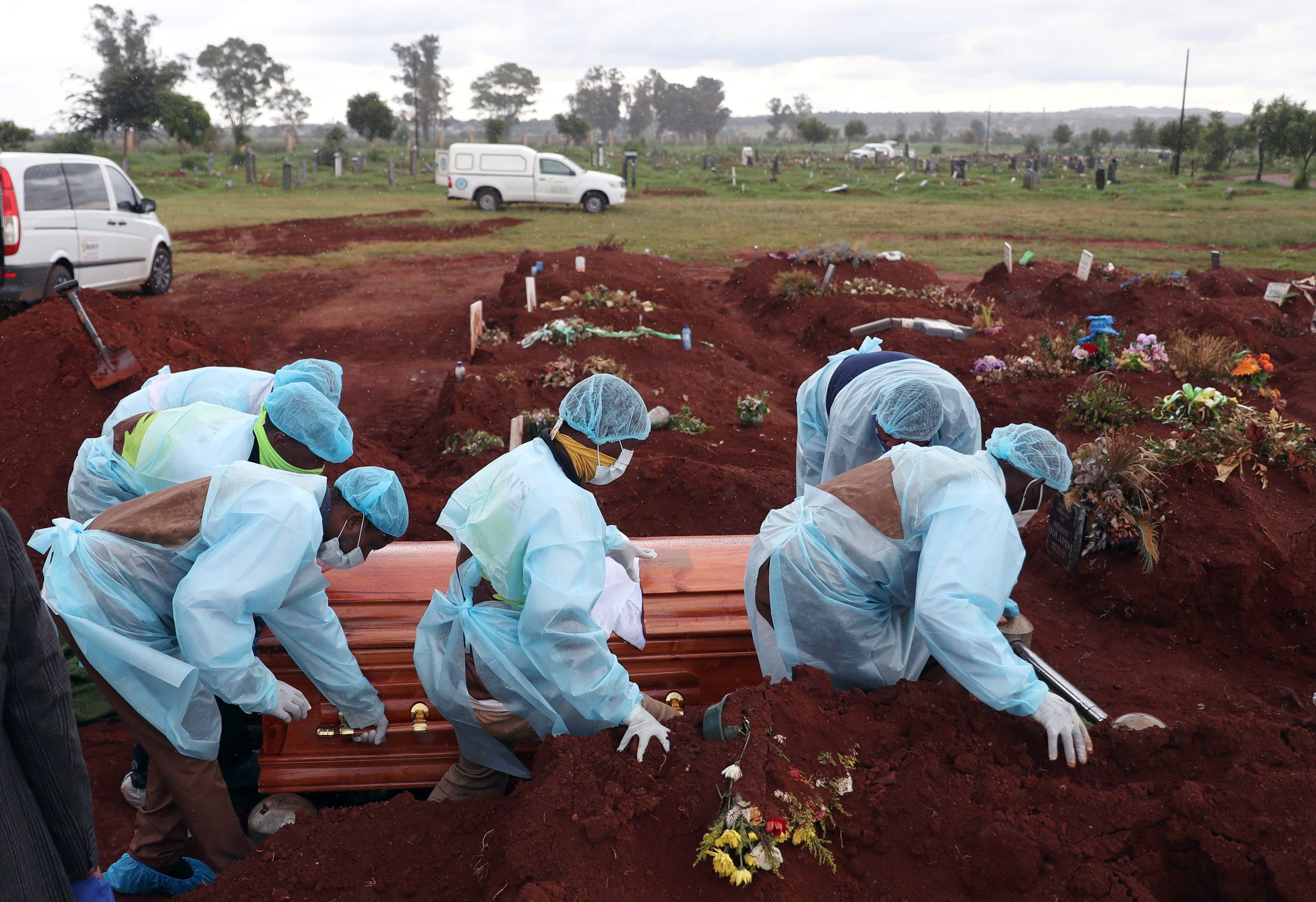SUMMARY
This is AI generated summarization, which may have errors. For context, always refer to the full article.

Previous infection with the coronavirus may offer less protection against the new variant first identified in South Africa, scientists said on Monday, January 18, although they hope that vaccines will still work.
Studies also found that the new variant binds more strongly and readily to human cells. That helps explain why it seems to be spreading around 50% quicker than previous versions, leading South African epidemiologist Salim Abdool Karim said.
The 501Y.V2 variant was identified by South African genomics experts late last year. It has been the main driver of a second wave of national COVID-19 infections, which hit a new daily peak above 21,000 cases earlier this month.
It is one of several new variants found in recent months, including others first discovered in England and Brazil, which scientists worry are hastening the spread of COVID-19.
“Convalescent serum studies suggest natural antibodies are less effective,” Abdool Karim said, introducing the research, “(but) current data suggest the new variant is not more severe.”
British scientists and politicians have expressed concern that vaccines currently being deployed or in development could be less effective against the variant.
Scientists speaking at the virtual panel on Monday said there was not yet a clear answer to that question and that studies were continuing.
“We have reason to be concerned because the virus has found a way to escape from previous antibodies,” Alex Sigal, a virologist at the Africa Health Research Institute, said.
“The world has underestimated this virus. This virus can evolve, it…is adapting to us.”
Earlier, South African researchers said that since vaccines induce a broad immune response it was unlikely that the mutations in the spike protein of the variant would completely negate their effect.
The researchers reiterated that notion on Monday.
“Our immune systems are extraordinarily clever,” Willem Hanekom, one of the team, said. “There may be compensation through other arms of the immune system that allow vaccines to still work.”
The 501Y.V2 variant has spread to nations in Europe, Asia, and the Americas, as well as several other African countries, causing some states to impose restrictions on travel to and from South Africa. – Rappler.com
Add a comment
How does this make you feel?

There are no comments yet. Add your comment to start the conversation.